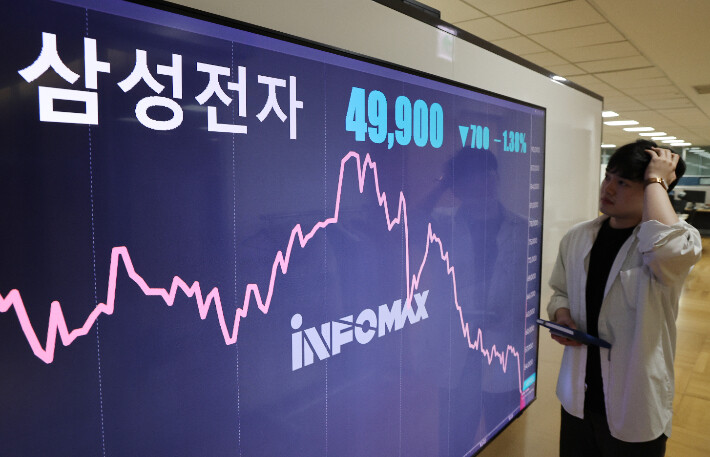
Seoul, South Korea – Samsung Electronics has announced a $7.17 billion share buyback program, aiming to boost its sagging stock price and appease shareholder demands. The move comes as the tech giant faces growing pressure to return more value to shareholders.
The company revealed that it will repurchase 10 trillion won ($7.17 billion) worth of its own shares over the next year. While 3 trillion won worth of shares will be immediately canceled, the remaining 7 trillion won will be used to enhance shareholder value, with the specific method and timing yet to be determined.
Share buybacks, where a company purchases its own shares on the open market, reduce the number of outstanding shares, thereby driving up the stock price. This is a common strategy used by companies to return value to shareholders.
Samsung's decision to buy back shares comes as its price-to-book ratio (PBR) has fallen below 0.9, indicating that its market capitalization is lower than its book value. This has raised concerns among investors about the company's valuation and prompted calls for increased shareholder returns.
The move aligns with the growing trend of value investing in South Korea, where shareholders are increasingly demanding share buybacks and cancellations. According to the Korea ESG Standards Institute, the number of shareholder proposals related to share buybacks and cancellations has surged from fewer than five per year between 2020 and 2022 to 14 in 2023 and 20 in 2024.
Furthermore, there has been a growing trend of companies proposing changes to their articles of association to give shareholders more say in decisions regarding share buybacks and cancellations.
However, while the number of shareholder proposals has increased, the success rate remains low. Due to the concentrated ownership structures of many South Korean companies, it is often difficult for minority shareholders to get their proposals approved.
In some cases, companies have used share buybacks to strengthen their control over the company. For instance, some companies have exchanged shares with friendly parties to create a more stable shareholder base. Naver, South Korea's largest internet portal, is a prime example. The company has engaged in several share swap deals with other companies, including CJ Group, to increase its friendly shareholder base.
This practice has raised concerns among corporate governance experts. The Korea Corporate Governance Forum has urged Samsung to cancel all of the repurchased shares, arguing that share buybacks without cancellations are often used to entrench management. The forum also highlighted that using company funds to protect the interests of specific shareholders is illegal.
[Copyright (c) Global Economic Times. All Rights Reserved.]




























